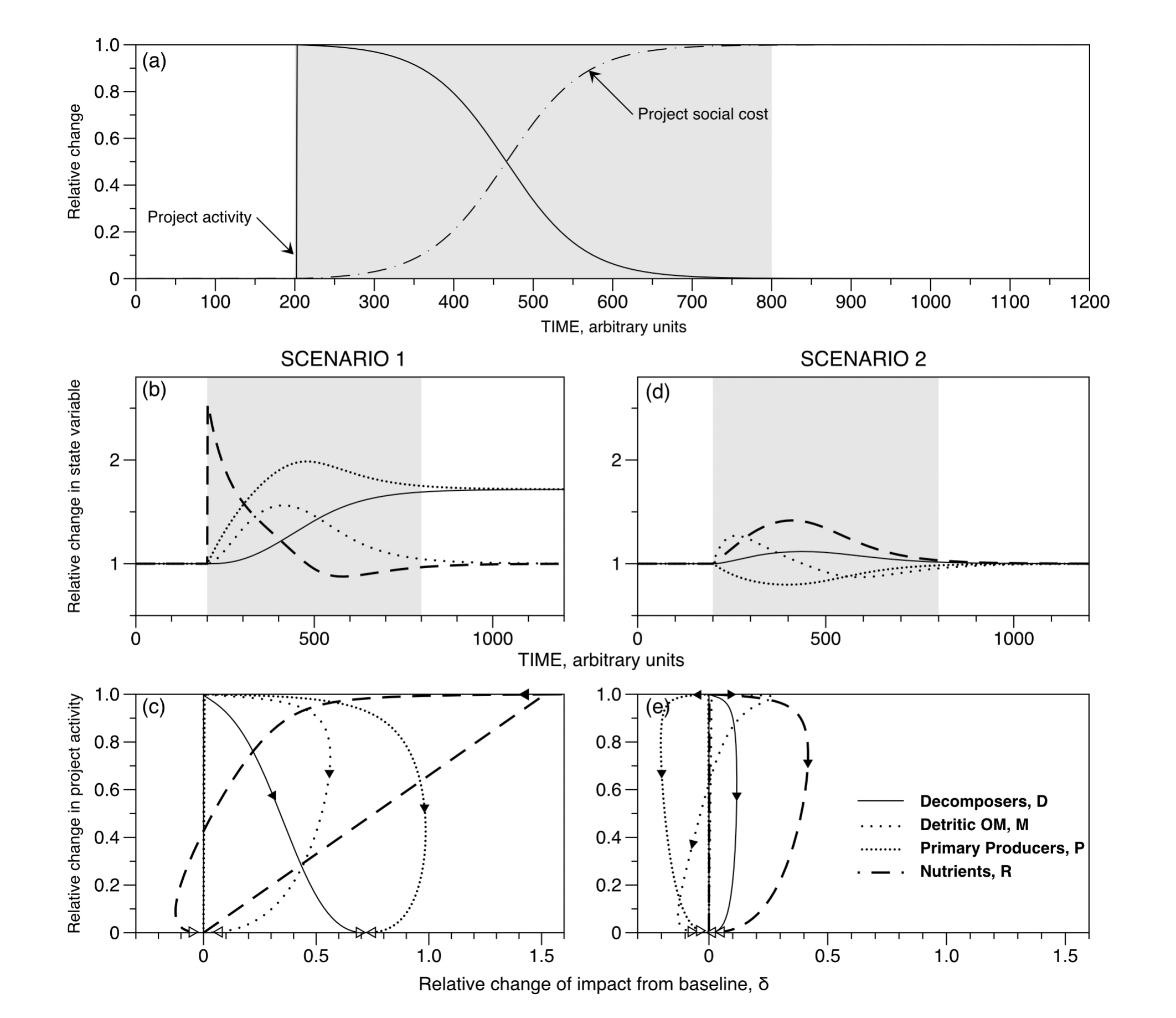research projects
We are involved in many different areas of both fundamental and applied ecological research, including behavioural ecology, historical ecology, and environmental impact studies. Scroll down to see highlights of our recent activities and accomplishments in each area.
To see some highlights of our activities, click on one of the categories below:
Behavioural Ecology -- Historical Ecology -- Environmental Impact
Behavioural Ecology. Theoretical developments have led us to place the individual organism at the centre of ecological system functioning. Therefore the study of organism behaviours and their consequences for the overall functioning of ecosystems is an area of fundamental research for EBLab. We have several ongoing projects in this area about baleen whales, lobsters, crabs, gastropods and bivalves.
Our new series of articles on bivalve valvometry suggests some new avenues of development for these data in shellfish farming and for EIA …
A new Feature Article on lobster bioacoustics by PhD student, Youenn Jézéquel (UBO-LEMAR), has just appeared.
Our most recent article was inspired by a problem we encountered during a field ecology school when a group of students wished to interpret the results of a light avoidance experiment with crabs.
Studying possible links between sounds and baleen whales' behaviour means solving three complex problems at once ...
C-Scape Project Update: In the North Atlantic Ocean, humpback whales (Megaptera novaeangliae) reproduce in the warm waters of the Sargassum Sea and Cape Verde ... but where do they go after this? Discover more on our work with individual-based models of migrating whales in this update.
EBLab is pleased to announce our participation in a new research project about whales and the acoustic landscapes they encounter during migration (C-SCAPE).
Historical Ecology. This is a new speciality in marine ecology that aims to develop the analysis of ecological trends using data from many different, often non-traditional, sources. Historical ecology studies combine insights from historical documents with quantitative analyses of ecological interactions to hindcast past conditions.
We hear a lot about the negative effects of different industries on natural resources, like fish populations, but we have few indications of how some of these pressures have affected different marine and coastal systems and what their long-term or hidden impacts might be.
This original research is a re-examination of the historical origins of ecology and nature protection movements, and their epistemological development, by testing their theoretical frameworks. It is revealed that ecology, like biology, for historical reasons has developed a scientific practice without fundamental scientific laws, severely limiting the ability of ecologists to produce generalizable results. Today this situation severely limits the relevance and credibility of much of ecological research in political arenas.
At the Scientiae2016 conference this summer in Oxford, we gave a presentation about the importance of studying the intellectual history of Buffon's Histoire Naturelle for understanding the origin of the scientific practice of ecology today and its inherent weaknesses.
Shipworms were a significant hazard for maritime navigation for millennia. While there are a number of publications that describe the species of shipworms present in different marine environments, few have tried to estimate the rate of wood removal as the infestation progresses from in situ observations.
Environmental Impact studies. This is an interdisciplinary initiative,that includes topics in theoretical ecology, technological solutions to improve underwater observation and measurement, and epistemological and anthropological studies with researchers from the humanities.
Our second article considering the place of quantitative tools in environmental impact assessments came out at the end of 2017.
This month, we've been testing a new acoustic survey technology for mapping coastal marine vegetation (especially seagrass meadows) in the Bay of Brest.
Since the term was invented in the 1970s, Environmental Impact Assessment has been roundly criticized for relying on untested, qualitative information to describe the impact of development projects. We develop the first quantitative framework in this publication.
31 May 2016. We were honored to give a presentation at one of the prestigious ICES conferences on socio-ecological systems, this year in Brest, France ...
High resolution LIDAR campaign along the French Catalan coast (France, NW Gulf of Lions) lays the groundwork for a new approach to EIA






![Modelling trapping methods used in the ancient Tyrian Purple industry to study populations [updated]](https://images.squarespace-cdn.com/content/v1/541bf450e4b02b7c37ee320f/1502122979362-N32X8JRI8WHR72XBK360/2011_IMG_1735.JPG)







